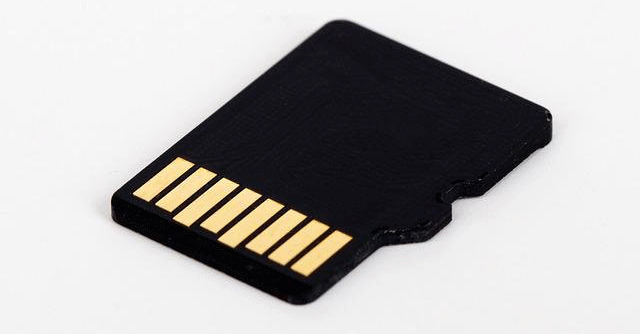
Micron rolls out 1.5TB microSD card, automotive safety memory for data at intelligent edge


US semiconductor giant Micron Technology is sampling to customers what it claims to be the world’s highest-capacity microSD card, the i400, at a density of 1.5 terabytes (TB).
The company said that this card is designed for industrial-grade video security with the world’s first 176-layer 3D NAND, also pioneered by Micron.
A microSD card is a much smaller variation of SD card that is used in small portable electronic devices.

The company has expanded its embedded product portfolio and ecosystem partnerships to cater to complex memory and storage demands at the intelligent edge.
According to a company statement, the 1.5TB density can store up to four months or 120 days of video security media locally, enabling users to optimise what data is stored in the cloud.
The high capacity eradicates the requirement to continuously upload data to the cloud for primary storage, a process that consumes network bandwidth and operational expenses, it said.

As per Micron Technology, small businesses looking to reduce expensive bandwidth or remote sites including cargo ships or oil rigs with limited connectivity can instead periodically upload data to the cloud for backup while relying day to day on i400 storage at the edge.
“With edge devices generating critical insights for everything from public safety to vehicle autonomy to manufacturing operations, today’s smart applications cannot afford to compromise on latency or quality,” said Kris Baxter, corporate vice president and general manager of Micron’s Embedded Business Unit.
Baxter further said that Micron’s newest high-performance, ruggedised solutions our i400 microSD card for video security and automotive ASIL-D-qualified LPDDR5 will unlock new value for businesses and drive the rapid innovation needed at the intelligent edge.

The company noted that ADAS-enabled vehicles now run over 100 million lines of code and require hundreds of tera operations per second, rivaling data centre compute. Gartner projects the worldwide factory fitted automotive memory market will grow to nearly $15 billion in 2026, quadrupling from $3.3 billion last year.
At the same time, automakers must comply with strict functional safety standards for electronic systems. Trusted, high-performance memory is imperative for reliably powering safety-critical applications such as adaptive cruise control, lane departure warning and blind-spot detection. It is also key to unlocking ADAS technologies such as autonomous valet parking and ridesharing, 4D digital imaging radar, and hands-free experiences that will pave the way for full Level 5 autonomy, the statement read.
In March, Micron Technology has introduced 7450 solid-state drive (SSD) which is based on 176-layer 3D NAND technology. The storage device is customised for data centre applications and the company claims that it is the world’s first advanced storage device for data centres.

The company said that the product under testing delivers ‘quality-of-service (QoS) latency’ at or below 2 milliseconds (ms), which are improving performances in databases such as Microsoft SQL Server, Oracle, MySQL, RocksDB, Cassandra and Aerospike, among others.
